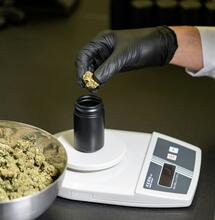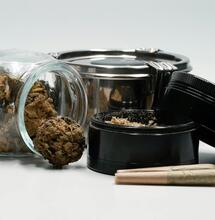As Money Flows, Vermont Weed Market is Overcrowding

Two years after its launch, Vermont’s recreational cannabis market is doing pretty well. Between October 2022 and now, retail has performed way better than expected. However, at the same time, the Vermont cannabis market is also entering a stage of overcrowding. While the profits are good, there are too many vendors by this point, and regulators need to act quick in finding creative solutions to upkeep a balanced state of the market.
In 2022, it was estimated that the cannabis industry in Vermont would likely cash in around $85 million, according to the Vermont Legislative Joint Fiscal Office. When the fiscal year closed in the summer, Vermont reportedly neared $128 million in retail, VTDigger reported.
While that might be an astounding achievement, things are looking a bit jammed. The number of retailers and cultivators is growing perhaps alarmingly. Which may be a familiar story to hear about legal cannabis markets in recent years, or more precisely, after the explosive 2020.
How Can You Tell the Vermont Cannabis Market is Overcrowded?
Vermont launched legal cannabis retail with only three dispensaries on Oct. 1, 2022. The number of licensed retailers in the Green Mountain State has since grown to 77. As the sector continues to grow, regulators are considering upgrades in policies so that it will keep the market stable and with equal opportunities for everyone.
The overcrowding of Vermont’s market is taking place swiftly, needless to say. That could partially be explained by the fact that medical cannabis was legal around the state for quite a while. Therapeutic use of the herb medicine was approved in 2004. Recreational legalization just naturally pushed the number of businesses up.
At present, there’s an increased interest for licenses in both retail and cultivation. Plus there is other legislation. A bill from last year has allowed recreational dispensaries to obtain a medical license as well. It was passed out of fears for the medical market.
When it comes to seeds and immature plants, a lot of businesses are reportedly sourcing from out of state, which makes products more difficult to oversee, according to regulators.
As for that matter, another piece of legislation introduced a new license type that principally allows growers to sell immature cannabis plants to other vendors. The measure took effect over the summer. Regulators believe that it’s the kind of measure that could keep craft cannabis in Vermont, and prevent an outsource of local cultivars elsewhere outside the state.
Vermont Has Ample Licenses for Cannabis Cultivation
Industry insiders believe that there could be losses as a consequence of the heightened competition, which does not merely end with the rising number of dispensaries. It also concerns cultivation. Legislators are in a race with time to calculate when would be the possible peak in the industry and thus, to act accordingly.
At this point, there are almost 400 active licenses for cultivation, according to Vermont’s Cannabis Control Board. Which makes the risk of overcrowding among Vermont’s cannabis cultivation licensees very real.
The Board also runs a $1.5 million business development fund for social equity businesses, which aims to funnel money for operators from marginalized backgrounds, according to VTDigger.
In addition, there are three active vertical integration licensees. Or businesses that could participate in every segment of the legal cannabis market. With multiple operations and higher staff numbers, there are even greater challenges for this type of operators.
Federal Banking Reform Could Help Vermont Cannabis Market
Business operations that are illegal on a federal level do face very unique challenges. It’s always swimming in unknown waters. The cannabis industry as a whole is all too familiar with it, and Vermont is no exception. If only there was a real banking reform, a lot of doors would open.
Banks don’t want to have anything with cannabis transactions. In the current situation, Vermonters, as everyone else in other state legal markets, are subject to excessive regulation and working with cash only.
Cannabis operators are also not eligible to take loans from the federal Small Business Administration or the Department of Agriculture. In many other sectors, taking those loans is exactly what helps a business survive.
Vermont lawmakers are debating further measures that could bring in more cash to the legal market. Some of these include creating event licenses and introducing looser potency caps.
Businesses also call for regulators to approve other measures that could help introduce new products and get more creative around the offer. More specifically, they wait for the approval of pre-rolls that contain both cannabis and CBD hemp. The products would have a higher CBD content and could be appealing to a lot of users if approved.
Vermont’s cannabis market may be overcrowding, but in absence of real banking reform, it again comes down to state regulators to craft meaningful policies that could balance the state of the market as it reaches its peak.
Also read on Soft Secrets:
- New California Bills Include Provisions for Cannabis Cafes













